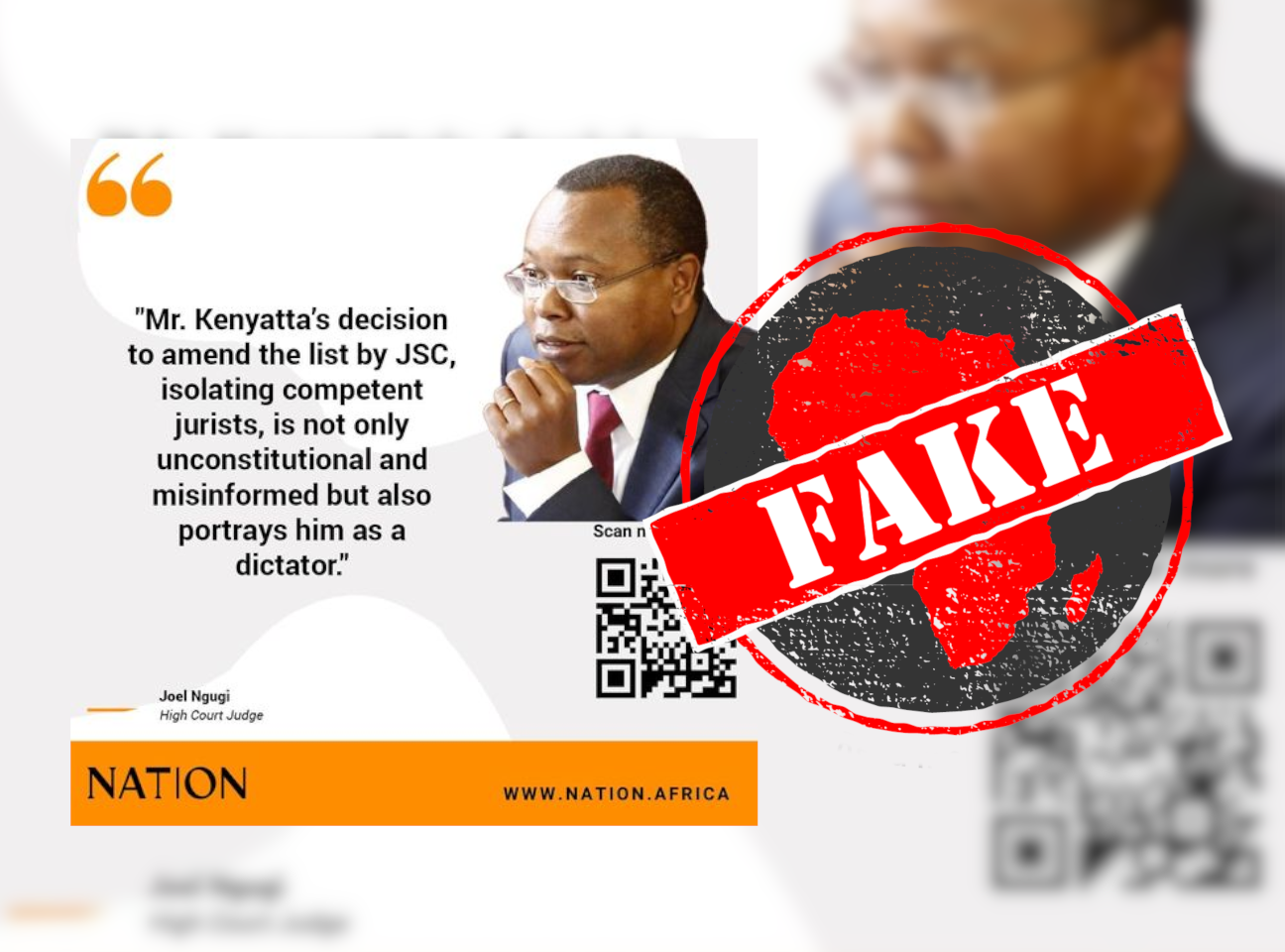In June 2021 Kenyan president Uhuru Kenyatta declined to appoint six judges nominated by the Judicial Service Commission (JSC) to new positions in the judiciary.
Soon after, graphics quoting Joel Ngugi, one of the rejected judges, slamming Kenyatta as “a dictator” started circulating widely on Facebook. The president had turned down Ngugi’s nomination to the appeal court.
The quote reads: “Mr. Kenyatta’s decision to amend the list by JSC, isolating competent jurists is not only unconstitutional and misinformed, but also portrays him as a dictator.”
Two versions of the graphic are doing the rounds. One carries the branding of Nation, a major Kenyan news website. The other uses the logo of Kenyans.co.ke, another news website. Both show a photo of Ngugi, and clearly attribute the quote to him.
In October, Kenya’s high court ordered Kenyatta to appoint the JSC’s six nominees.
But did Ngugi make this public comment about the president? And did Nation and Kenyans.co.ke quote him as saying it?

‘Beware of fabricated graphics’
On 4 June, the day the graphics started circulating online, the Kenyan judiciary posted one version on its verified Twitter account – stamped “fake”.
The attached message circulating on social media and purporting to quote Judge (Prof) Joel Ngugi commenting on the judges' appointments is FAKE NEWS! Please treat it as such. pic.twitter.com/SKMMAP146R
— The Judiciary Kenya (@Kenyajudiciary) June 4, 2021
“The attached message circulating on social media and purporting to quote Judge (Prof) Joel Ngugi commenting on the judges’ appointments is FAKE NEWS!” the tweet reads. “Please treat it as such.”
Kenyans.co.ke retweeted the judiciary, adding: “BEWARE of fabricated graphics circulating on social media. Always authenticate by checking on the media houses' platforms.” The media house then tweeted Africa Check’s fact-checking tips.
We searched for the graphic on Nation’s social media platforms, and could not find it.
Republish our content for free
For publishers: what to do if your post is rated false
A fact-checker has rated your Facebook or Instagram post as “false”, “altered”, “partly false” or “missing context”. This could have serious consequences. What do you do?
Click on our guide for the steps you should follow.
Publishers guideAfrica Check teams up with Facebook
Africa Check is a partner in Meta's third-party fact-checking programme to help stop the spread of false information on social media.
The content we rate as “false” will be downgraded on Facebook and Instagram. This means fewer people will see it.
You can also help identify false information on Facebook. This guide explains how.


Add new comment